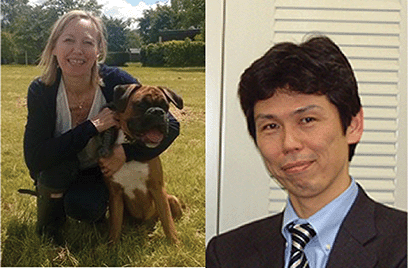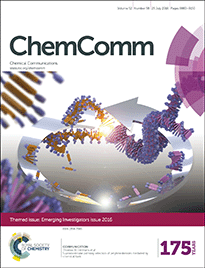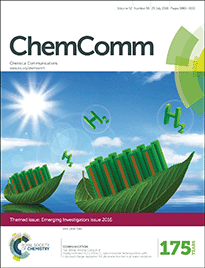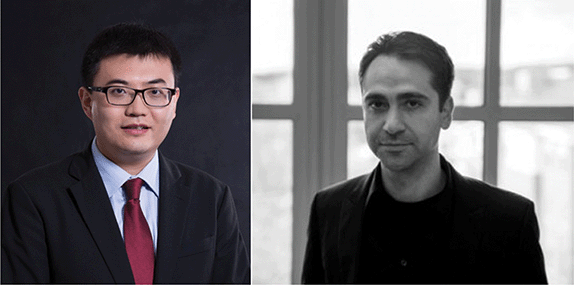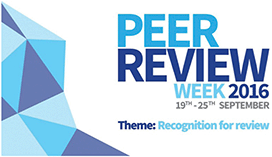Happy New Year from ChemComm – still the right place to make an impact!
Abstract
Happy New Year from ChemComm to all our readers, authors and reviewers! We share with you some of our highlights from the last year, and in particular how we aim to support the most outstanding emerging investigators.
As you may know if you are an author for any of the Royal Society of Chemistry journals, we have been conducting an annual survey of our authors for the past two years. The results of this year's survey for ChemComm were particularly pleasing, a highlight being that 100% of our respondents told us the overall reputation for our journal was either good or very good. Why is this so important? In a recent 2015 Author Insight survey conducted by Nature Publishing Group, journal reputation was ranked as the most important factor for authors when deciding on where to submit their next article.1
Our authors also told us that this reputation is based on a number of factors including speed, quality and the visibility of our articles. We’re pleased to say that not only do we continue to strive for and provide the most rapid publication times in our field,2 our authors recognise that the global authorship and readership and broad subject reach of the journal means their work gets seen and read by those important to them in their community. This is backed up by our highest ever Immediacy Index this year at 1.713, suggesting this work is not only read, but cited quickly too.
The breadth of our readership can also be seen in the fact that researchers around the world also cited ChemComm articles over 175![[thin space (1/6-em)]](https://www.rsc.org/images/entities/char_2009.gif) 000 times last year, making us one of the most cited general chemistry journals, according to Thomson Reuters in its 2015 Journal Citation Reports®.
000 times last year, making us one of the most cited general chemistry journals, according to Thomson Reuters in its 2015 Journal Citation Reports®.
With more than 175![[thin space (1/6-em)]](https://www.rsc.org/images/entities/char_2009.gif) 000 cites under our belt in 2015, we can’t help but think was an apt and fitting way of celebrating 175 years of the Royal Society of Chemistry, in the service of the chemical science community and as the oldest chemical society in the world.
000 cites under our belt in 2015, we can’t help but think was an apt and fitting way of celebrating 175 years of the Royal Society of Chemistry, in the service of the chemical science community and as the oldest chemical society in the world.
New faces in 2016
Early in 2016, we were also delighted to announce Professor Véronique Gouverneur as its new Editorial Board Chair.Véronique, who is Professor of Chemistry at the University of Oxford, leads a dynamic research group and holds a tutorial fellowship in organic chemistry at Merton College Oxford. She has been internationally recognised for her outstanding and original work in fluorine chemistry, and has recently been awarded the Tetrahedron Chair for 2016. She was also the Blaise Pascal Chair from 2012 to 2014, and is currently holding a Royal Society Wolfson Research Merit Award (2013–2018).
Her research aims to develop new approaches to address long-standing problems in the synthesis of fluorinated analogues of natural products, pharmaceutical drugs and molecular [18F] labelled probes for PET imaging. We look forward to working with Véronique towards an even more exciting and dynamic future for ChemComm.
We are very pleased to welcome Professor Itaru Hamachi from Kyoto University as a new Associate Editor to the team and look forward to working with him over the coming years. Itaru is a chemical biologist with expertise in live-cell organic chemistry, chemical biology, bioorganic and bioinorganic chemistry, and supramolecular biomaterials. He is now accepting submissions to ChemComm in the area of chemical biology. Itaru is looking forward to his new role:
“I would like to encourage new chemistry and chemical approaches between the chemistry and biology interface to appear in ChemComm, in order to decipher a lot of chemical-biology problems and also to create novel bio-inspired materials.”
Supporting our Emerging Investigators
Once again in 2016, we published our Emerging Investigators issue,3 and now in its sixth year, this annual collection continues to showcase internationally recognised, up-and-coming scientists who are making outstanding contributions to their respective fields.This year's issue includes a selection of Feature articles and Communications, as well as a profile of this year's contributors, with interesting photos to spotlight our authors at work or at play – look out for a cool plasma ball, white-water rafting, a cute canine friend, and loads of lovely shots in the great outdoors!
We are also delighted to highlight the work of Ang Li, from Shanghai Institute of Organic Chemistry, China, in organic synthesis and natural products. He was the winner of the 2016 ChemComm Emerging Investigator Lectureship. Ang will present his ChemComm Lectures at high profile international conferences both in China and the UK. This annual Lectureship recognises an emerging scientist in the early stages of their independent academic career, and we are pleased to welcome nominations for the 2017 ChemComm Emerging Investigator Lectureships – nominate now!
A further annual prize which ChemComm is proud to support is the Cram Lehn Pedersen Prize given to an outstanding early-career supramolecular chemist, and in 2016 this was Ivan Aprahamian, Dartmouth College, USA for his exciting research on molecular switches. As part of the Prize, Ivan gave his lecture at the 11th International Symposium on Macrocyclic and Supramolecular Chemistry meeting in Seoul, Korea which took place in July 2016.
The Cram Lehn Pedersen Prize, named in honour of the winners of the 1987 Nobel Prize in Chemistry, recognises significant original and independent work in supramolecular chemistry. Previous winners include Feihe Huang, Oren Schermann, Tomoki Ogoshi, Jonathan Nitschke, and Amar Flood.
The International Committee of the International Symposium on Macrocyclic and Supramolecular Chemistry is pleased to invite nominations for the 2017 Cram Lehn Pedersen Prize for young supramolecular chemists.
The 2017 ISMSC meeting will be held in conjunction with ISACS: Challenges in Organic Materials & Supramolecular Chemistry, in Cambridge in July 2017. The meeting already has a fantastic line-up of speakers including François Diederich (ETH Zurich, Switzerland), David Leigh (The University of Manchester, UK), Jeffrey Long (University of California, Berkeley, USA), Vivian Yam (University of Hong Kong, Hong Kong) and Xi Zhang (Tsinghua University, China). Full details of all the confirmed speakers may be found on the event website.
Thank you to authors and reviewers
We'd also like to take this opportunity to thank all our authors and reviewers, who are crucial in enabling us to publish the most urgent communications from across the chemical sciences.2016 Peer Review Week was this year focused around the theme of ‘Recognition for review’, and so we would like to make a special mention of ChemComm's top 10 reviewers highlighted during the week:
Top 10 Reviewers for ChemComm:
Dr Xuehai Yan – Max-Planck Institute of Colloids and Interfaces, GermanyDr Yong Wang – Dalton Cardiovascular Research Center, USA
Dr Cheng Wang – Xiamen University, China
Dr Tieru Zhang – Technical Institute of Physics and Chemistry, China
Dr Jie Wu – National University of Singapore, Singapore
Dr Guocan Yu – Zhejiang University, China
Dr Xiangbing Qi – National Institute of Biological Science Beijing, China
Dr Yong Li – University of Missouri-Kansas City, USA
Dr Youjun Yang – East China University of Science and Technology, China
Professor Martin Albrecht – University of Bern, Switzerland
As always, we welcome feedback or suggestions for the improvement of the journal; please do not hesitate to get in touch with us if you would like to discuss any aspect of publishing in ChemComm. Please do contact us at E-mail: mailto:chemcomm-rsc@rsc.org.
Finally, on behalf of all the ChemComm team and Associate Editors, we would like to wish you a very Happy New Year, and we look forward to hearing from you in 2017.
May Copsey, Executive Editor, Chemical Communications
Susan Weatherby, Editorial Production Manager, Chemical Communications
Jeanne Andres, Deputy Editor, Chemical Communications
References
- https://figshare.com/articles/Author_Insights_2015_survey/1425362, Nature Publishing Group (NPG) and Palgrave Macmillan.
- Based on the average time from receipt to publication for advance articles published in June 2016, measured against key journals in the discipline.
- 2016 Emerging Investigator Issue, ChemComm, 2016, 58, 8883–9150 Search PubMed.
| This journal is © The Royal Society of Chemistry 2017 |

